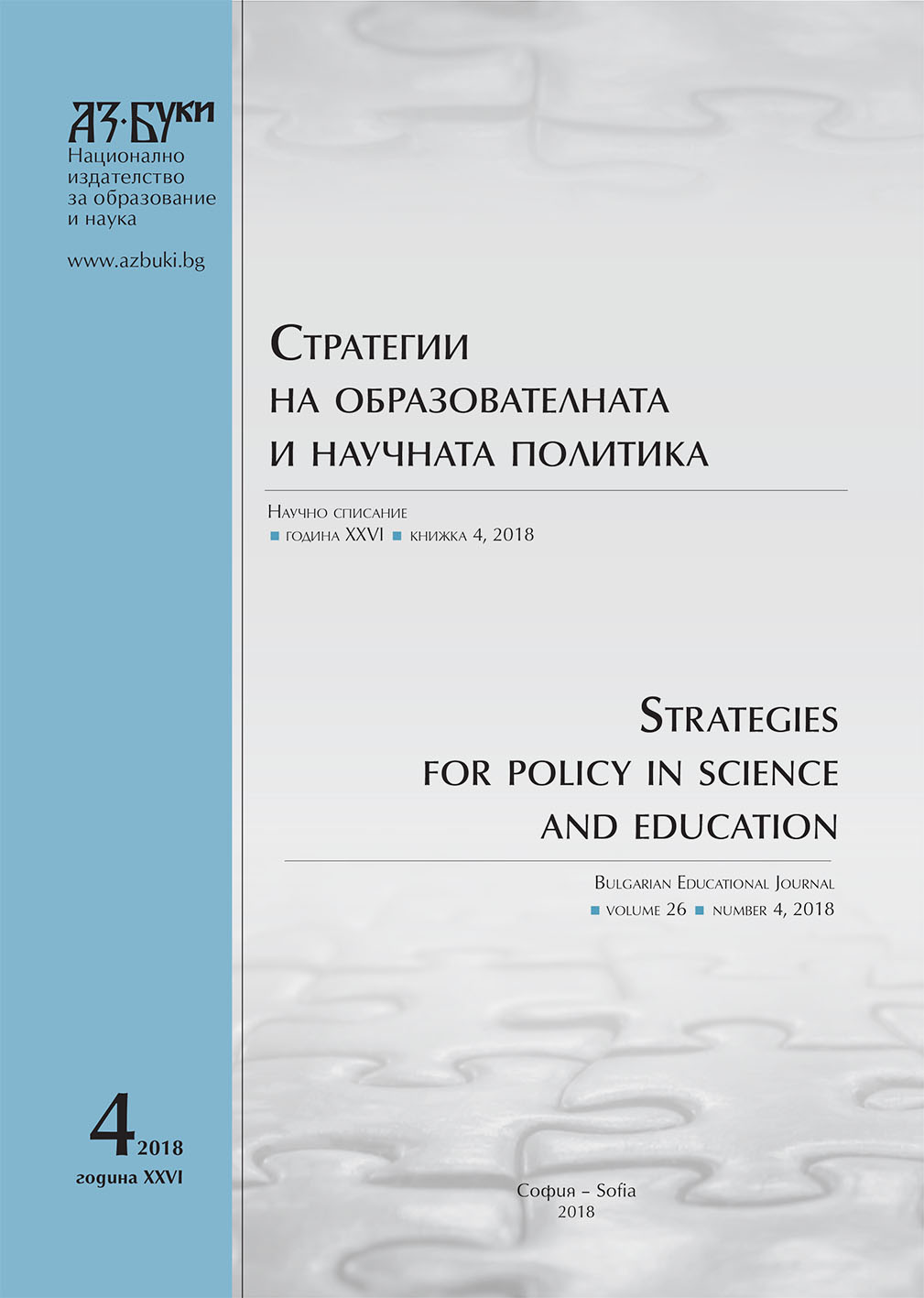Ключови компетенции в контекста на здравното образование в предучилищна възраст
Key Competences in the Context of Health Education in Pre-School Age
Author(s): Sofia Karakehayova, Bilyana KaloferovaSubject(s): Social Sciences, Education, Sociology, Preschool education, Vocational Education, History of Education, Educational Psychology, Social development, Health and medicine and law, Human Ecology, Social Informatics, Social Norms / Social Control, Inclusive Education / Inclusion, Sociology of Education, Identity of Collectives
Published by: Национално издателство за образование и наука „Аз-буки“
Keywords: health education; key competencies; workshop – complementary form of pedagogical interaction; pre-school age
Summary/Abstract: Health education is aimed at developing skills to create or maintain a healthy lifestyle, voluntary adaptation to health-friendly behavior. It is seen as a process of lifelong learning for people how to live, to maintain and improve their own and other people’s health. It is widely believed that in order to achieve the objectives of health education, approaches, forms and methods of pedagogical interaction should be appropriate and effective. According to a number of authors, effective health education repeats the natural processes through which children observe certain norms of behavior. Emphasis is placed on the discovery strategy for orientation of the child in a healthy and social environment, realized through a variety of variational solutions, based on the specifics of the research march. In a series of workshops that have the status of complementary forms of pedagogical interaction, which define goals, bring out basic content units - a combination of knowledge, skills and relationships that reflect key competences as a result of guiding the 6-7-year-old child into a healthy and social environment.
Journal: Стратегии на образователната и научната политика
- Issue Year: 26/2018
- Issue No: 4
- Page Range: 387-398
- Page Count: 12
- Language: Bulgarian
- Content File-PDF

